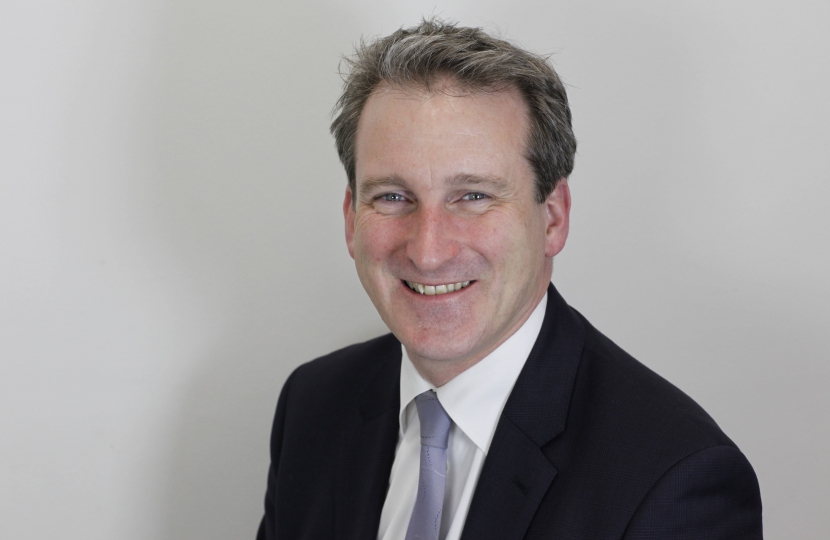
Damian welcomes announcements made in the Spring Budget that reinforces the Government’s commitment to make sure the UK economy remains strong ahead of preparations for leaving the EU.
With the economy forecast to grow by 2 per cent in 2017 - up from 1.4 per cent forecast in November – and the deficit forecast to fall to 2.6 per cent of GDP in 2016-17, fiscal policies continue to support the economic growth needed to improve public finances.
Damian said:
“With our national debt equating to almost £62,000 for every household in the country, which is more than we spend on defence and policing combined - it’s critical that we continue to get public spending under control.
“But it’s also critical that we invest in Britain’s future and make it the best place in the world to do business. Corporation Tax will fall to 17 per cent by 2020, and that sends a very powerful message to the rest of the world that we’re open for business.”
The focus remains on improving productivity performance which is turn will help boost living standards across the country; higher productivity means an economy that offers better jobs, with better pay.
Investment in cutting edge technology, infrastructure and innovation will also be key. The budget included £270 million to support research in Artificial Intelligence and robotic systems, battery technology and electric vehicles. And an allocation of £290 million to support new PhD places, focused on STEM subjects.
Damian added:
“Ensuring Britain can compete in the global economy is vital for our economic well-being at home. Having a strong economy is key to achieving rising living standards and supporting the public services we rely on every day.
“We have a strong base - real wages have grown for 27 straight months, unemployment is at an 11 year low and the employment rate is at a new all-time high – but there is no room for complacency.”
An additional grant funding of £2 billion for social care in England over the next three years was announced, alongside a further £100 million for up to 100 new triage projects at A&E in English hospitals in time for next winter.
Last year a million of the lowest paid had a pay rise with the National Living Wage, which will rise again to £7.50 in April – an income boost of over £500 for a full time worker this year.
The personal allowance will rise for the seventh year in a row, benefitting 29 million people and meaning a typical basic rate taxpayer will pay a full £1,000 less income tax than in 2010. The higher rate threshold will rise to £45,000, and savers will have access to the new NS&I bond announced at the Autumn Statement. And the Universal Credit taper rate will be reduced from 65 per cent to 63 per cent – effectively like a tax cut for 3 million families on low incomes.
With the roll-out of our Tax-Free Childcare policy and the doubling of free childcare for working parents with three or four year olds, a young family with a three year old and both parents working will receive free childcare worth around £5,000 a year from September.

